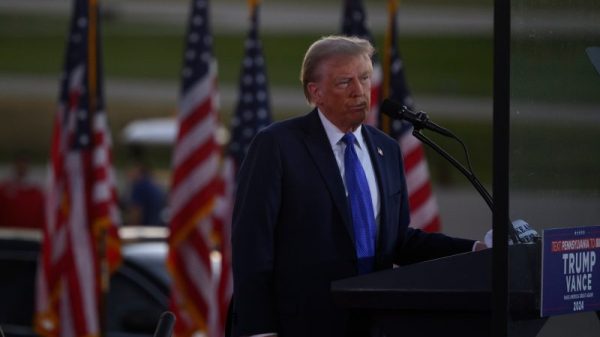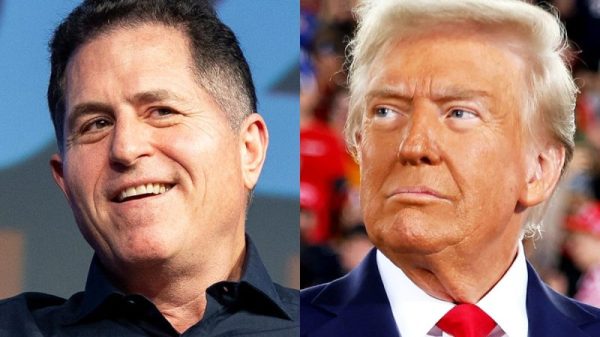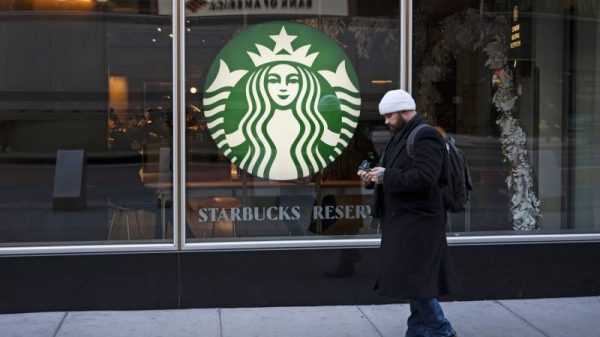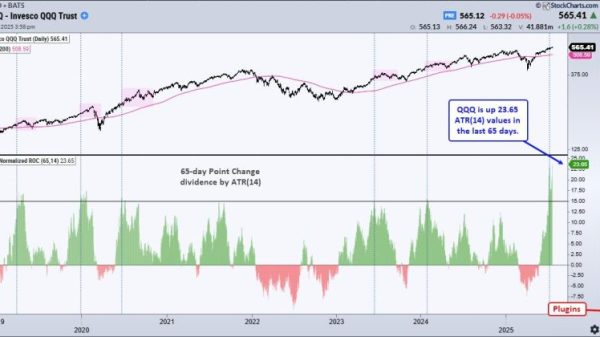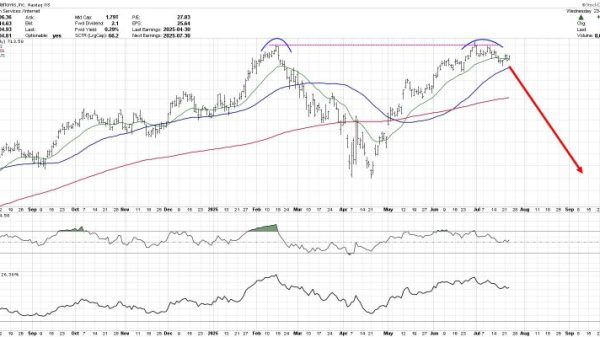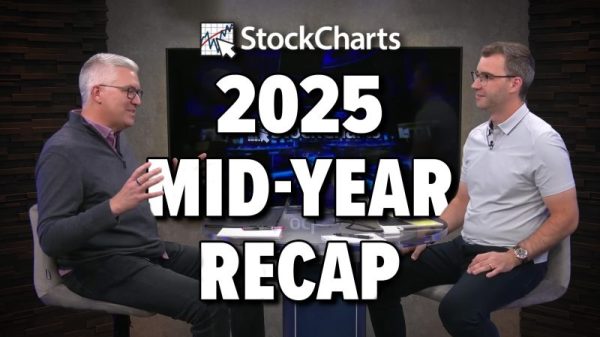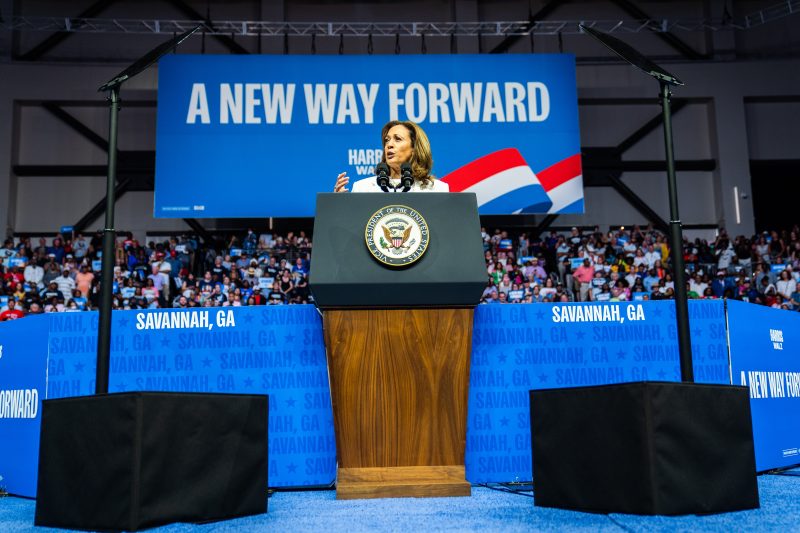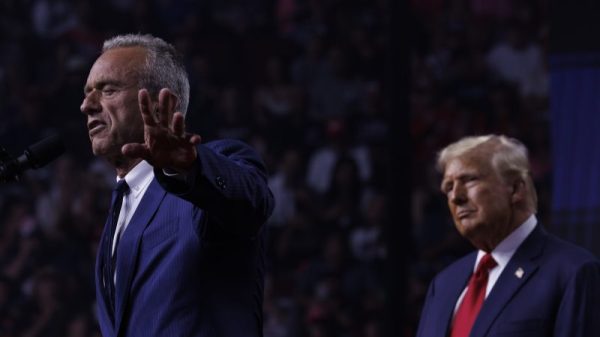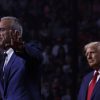At one point in CNN’s interview of Vice President Kamala Harris on Thursday, journalist Dana Bash asked Harris about her defenses of President Joe Biden’s acuity. Harris, obviously expecting the question, praised the president before pivoting to an argument for her candidacy.
“I am so proud to be running with [Minnesota Gov.] Tim Walz for president of the United States and to bring America what I believe the American people deserve,” Harris said, “which is a new way forward and turn the page on the last decade of what I believe has been contrary to where the spirit of our country really lies.”
“But the last decade, of course, the last three and a half years has been part of your administration,” Bash replied.
“I’m talking about an era that started about a decade ago where there is some suggestion — warped, I believe it to be — that the measure of the strength of a leader is based on who you beat down instead of where I believe most Americans are, which is to believe that the true measure of the strength of a leader is based on who you lift up,” Harris said.
She was talking, very obviously, about her opponent Donald Trump and the approach Trump takes to politics. But in establishing the force she seeks to reverse as having originated a decade ago, Harris is understating the problem. She’s identifying the era in a way that is both too narrow and too short.
The Trump era is about Trump in the way that the War of 1812 was about 1812: a critically important component and a useful touchstone but not all-encompassing. Turning the page on the era requires more than Trump failing to get an electoral vote majority.
Perhaps a more accurate time span to consider is something like 15 years. The election of Barack Obama as president in 2008 was hailed as a signal moment in the evolution of American politics and demography, but it also triggered a remarkable backlash. Ostensibly rooted in concerns about government spending, it was largely centered on the disruption of the economic crisis (which triggered an increase in spending) and that overlapping awareness of how America was changing.
The response focused on a nebulously defined group of elites that was subverting America and harming Americans: to extract money or to secure votes or to otherwise protect their power. The 2010 midterm election was defined by the sharp increase in hostility to Obama and by the Republican base’s belief that leaders in their party were insufficiently attuned — or overtly hostile — to the way these elites were destroying the country by spending money (often meaning on social programs) and allowing people to immigrate to the United States. This hostility was inextricable from the rise of a fervently right-wing media universe in which amplifying those concerns held enormous rewards.
Trump consumed that media and, upon entering the 2016 presidential race, repeated its rhetoric to his benefit. He was a Manhattan billionaire who would target the elites, a former Democrat who would upend the Democrats. In part because he was a consumer of the fringe right’s rhetoric, he understood that the engine of the backlash was far less about spending than culture. Republicans, including many who had simply checked out of the political process, wanted someone who would throw punches. So he threw punches: up, down, left, right.
As the 2012 election neared, Obama’s vice president, Joe Biden, predicted that the “fever” that had seized the GOP would break after his boss’s reelection. It was a prediction that was, in part, about framing Obama as the candidate who could repair the nation’s widening rift. It was also, it seems in retrospect, an assumption that the backlash was centrally about Obama, rather than what Obama represented. But nativist, racist backlashes against changing demography and circumstances are a regular feature of American history, and this one was no more solely about Obama than it was solely leveraged later by Trump.
What Trump added to the mix was decades of serving as the autocratic leader of a private business. He brought a disinterest in tradition and history and a pugilistic style honed on the pages of the New York Post. He brought a sense of entitlement that mirrored the entitlement felt by many of his supporters: that the advantages they enjoyed, if only tacitly, were advantages they earned or weren’t advantages at all. That a country adjusting to the rise of a more-urban, younger and less heavily White population was, instead, a country actively repressing everyone else. And Trump was willing to fight about it.
When Harris talks about turning the page on this, she means Trump, certainly. She means shifting American politics so that it is no longer unsurprising that a presidential candidate’s campaign might use Arlington National Cemetery for a campaign promotion, much less that it do so after accosting a cemetery employee who had reminded the campaign about laws against such activity, much less that no charges would result out of concern over hostile backlash from the candidate’s supporters. She means turning the page on a politician who would feel a sense of entitlement so sweeping that he might treat the military cemetery as something for his use and whose supporters would offer no objection to his doing so.
Turning the page on the energy Trump leveraged is trickier.
The country clearly exists in a moment of flux, in which, as Obama observed at the Democratic convention last week, we are fully testing the idea that a democracy built on pluralism can succeed. But part of the surge in enthusiasm for Harris’s candidacy is clearly rooted in her overtly representing the diversity of America. Conservative White Americans often see America’s non-White population as a unified entity colluding to strip the power of Whites. The shift from Biden to Harris at the top of the Democratic ticket allowed for a shift in strategy, too, from treating Trump as an opposing force to treating him as a historic outlier. Waving off Trump as “weird” has a knock-on effect, uniting those opposed to Trump’s candidacy and politics as the true inheritors of the American tradition.
Post-2020 predictions of Trump’s defeat proved premature. If Harris wins, there would still be frustration at the elites and at changing demographics; many on the right would remain feverish. But the fever might dissipate. It may be that Trump helped bring to fruition the political shift predicted with Obama’s 2008 victory. His win proved to be a potent organizing force for White conservatives.
The election of another Black president in the face of that force, an election powered by a coalition strengthened by opposition to Trump, might in fact turn the page that began being written 15 years ago. It is a page, though, that has appeared in American history books multiple times before.
